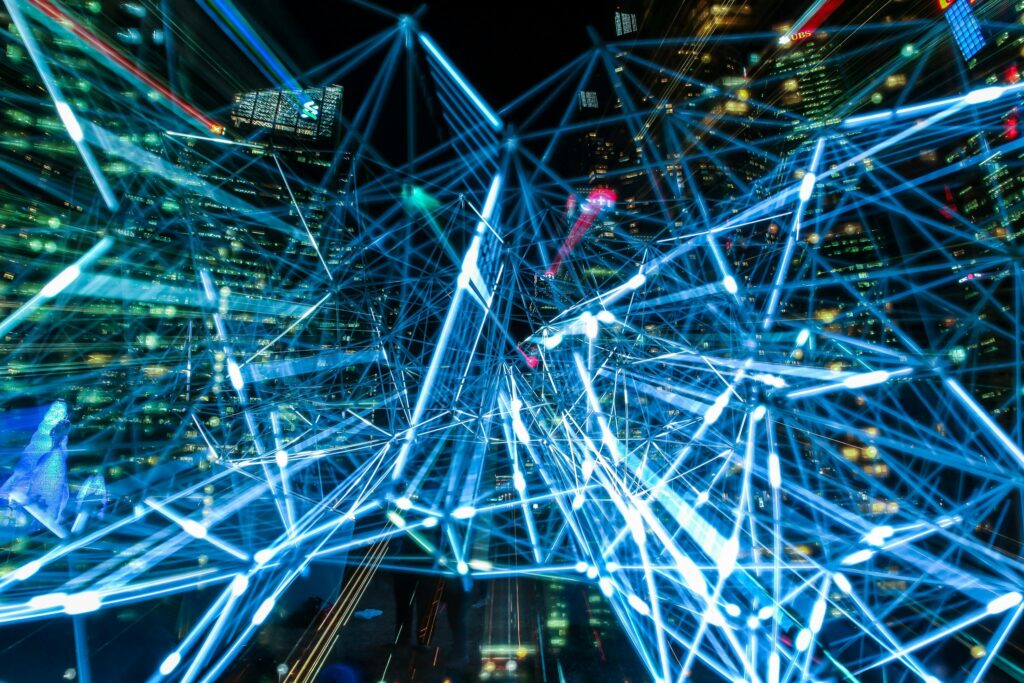How AI is Reshaping Content Creation in 2025
Introduction: The AI Revolution in Content Creation
Artificial Intelligence (AI) is no longer just a futuristic concept; it has become an integral part of the content creation process in 2024. From generating high-quality blog posts to optimizing SEO strategies and personalizing user experiences, AI is transforming the way businesses and creators produce content.
This post explores how AI is reshaping content creation, the benefits and challenges it presents, and what the future holds for AI-driven content.

1. AI-Powered Content Generation
One of the most significant impacts of AI in content creation is its ability to generate text quickly and efficiently. Tools like ChatGPT, Jasper, and Copy.ai enable businesses to create:
- Blog posts
- Social media updates
- Product descriptions
- Ad copy
These tools use Natural Language Processing (NLP) to generate human-like text, reducing the time and effort required for content production.
However, human oversight is still necessary to ensure that AI-generated content aligns with a brand’s voice, maintains accuracy, and adds genuine value.

2. AI and Personalized Content
Personalization is key to engaging audiences, and AI excels in this area. AI tools analyze user behavior, preferences, and engagement metrics to create tailored content experiences.
Examples of AI-Powered Personalization:
- Email marketing automation: AI can generate personalized email subject lines and content that cater to individual users.
- Dynamic website content: AI can modify website pages based on a visitor’s interests.
- AI-driven chatbots: These can deliver relevant blog recommendations and answer user queries in real-time.
By leveraging AI, businesses can deliver the right content to the right audience at the right time, enhancing engagement and conversion rates.
3. AI-Optimized SEO Strategies
SEO remains a crucial component of digital marketing, and AI-driven tools are making optimization more efficient than ever. AI can:
- Analyze search trends to suggest relevant keywords
- Optimize content structure for better readability and ranking
- Generate meta descriptions and alt texts automatically
- Predict future trends based on historical search data
Tools like SurferSEO, Clearscope, and RankIQ help businesses create SEO-friendly content that ranks higher on search engines with minimal manual effort.
4. AI in Video and Visual Content Creation
AI is not just revolutionizing text-based content; it is also enhancing video and visual content creation.
AI Applications in Multimedia Content:
- AI Video Editing: Tools like Runway ML and Descript automate video editing, remove backgrounds, and enhance visuals.
- AI-Generated Images: Platforms like DALL·E and MidJourney create stunning visuals based on text descriptions.
- Voiceovers and Synthetic Speech: AI-generated voices allow for fast and cost-effective narration for podcasts, ads, and explainer videos.
This automation reduces production time while maintaining high-quality standards.
5. AI and Ethical Challenges in Content Creation
While AI offers numerous benefits, it also raises concerns about authenticity, plagiarism, and misinformation. Some key ethical considerations include:
- AI-generated misinformation: Without human oversight, AI can generate misleading or biased content.
- Plagiarism risks: AI often pulls data from existing sources, raising concerns about originality and intellectual property.
- Loss of human creativity: Over-reliance on AI might lead to generic, uninspired content lacking emotional depth.
Businesses must balance AI efficiency with human creativity and ethical responsibility to maintain credibility and authenticity.
6. The Future of AI in Content Creation
The integration of AI in content creation is expected to grow even further. Some emerging trends include:
- AI-generated video content becoming mainstream.
- More advanced AI personalization for hyper-targeted marketing.
- Integration of AI with AR and VR to create immersive content experiences.
- AI-driven predictive content marketing, forecasting audience interests before they arise.
By staying ahead of these trends, businesses and content creators can leverage AI to streamline workflows, boost engagement, and drive innovation.
Conclusion: The Balance Between AI and Human Creativity
AI is undoubtedly reshaping content creation, making it faster, smarter, and more efficient. However, it should be viewed as a tool to enhance human creativity rather than replace it.
By combining AI’s analytical power with human storytelling and emotional intelligence, businesses can produce high-quality, engaging, and ethical content that resonates with audiences in 2024 and beyond.
Are you using AI in your content strategy? Share your thoughts in the comments below!
